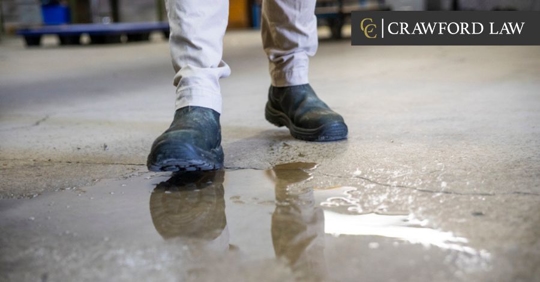When you suffer an injury on someone else's property in Florida, it's natural to wonder who is responsible. The answer isn't always straightforward, but Florida law provides clear guidelines to determine liability. As Florida residents, understanding these principles is crucial for protecting your rights.
The Foundation: Premises Liability
In Florida, property owners have a legal obligation to maintain a reasonably safe environment for visitors. This concept is known as premises liability. If a property owner fails to uphold this duty, and that failure leads to your injury, they may be held liable.
The level of care a property owner owes you largely depends on your status when you were injured:
Invitees: These are individuals invited onto the property for business purposes (e.g., a customer in a store, a patient in a doctor's office) or for public access. Property owners owe invitees the highest duty of care. This means they must regularly inspect the property for hazards, address any dangerous conditions promptly, and warn invitees of potential risks they know about or should have known about.
Licensees: This category typically includes social guests or individuals on the property with implied permission, not for business. Property owners owe licensees a duty to warn them of known dangers that are not open and obvious, and to refrain from intentionally harming them.
Trespassers: Generally, property owners owe trespassers the lowest duty of care. They are primarily obligated to avoid intentionally harming a trespasser. However, there's a significant exception: the attractive nuisance doctrine. If a dangerous condition on the property is likely to attract children (like a swimming pool, old machinery, or a construction site), the owner has a heightened duty to take reasonable steps to prevent harm, even if the children are trespassing.
Proving Negligence: The Core of Your Claim
To successfully hold a property owner responsible for your injuries, you generally must prove four key elements of negligence:
Duty of Care: The property owner owed you a legal duty to keep their property safe, based on your visitor status.
Breach of Duty: The property owner failed to meet that duty (e.g., they didn't fix a broken step, didn't clean up a spill, or didn't warn of a known hazard).
Causation: The property owner's breach of duty directly caused your injuries. There must be a clear link between their negligence and your harm.
Damages: You suffered actual damages as a result of your injuries (e.g., medical bills, lost wages, pain and suffering).
What if You're Partially at Fault? Florida's Comparative Negligence Rule
Florida follows a modified comparative negligence rule. This means that if you are found to be partially responsible for your own injuries, your compensation will be reduced by your percentage of fault. For example, if a jury determines your damages are $100,000, but you were 20% at fault, you would receive $80,000.
However, there's a critical threshold: if you are found to be 51% or more at fault for your injuries, you are barred from recovering any compensation from the other party. This makes it crucial to have an experienced legal team fighting to minimize any assigned fault on your part.
The Clock is Ticking: Statute of Limitations
It's important to act quickly. In Florida, the general statute of limitations for personal injury claims, including those arising from premises liability, is two years from the date of the incident. Waiting too long can mean losing your right to seek compensation.
Don't Face This Alone, Talk to a Pensacola Premises Liability Lawyer
Navigating Florida's premises liability laws can be complex. Property owners and their insurance companies will often aggressively defend against claims. If you've been injured on someone else's property in Florida, you need assertive, trustworthy, and informative legal representation. Don't let uncertainty prevent you from seeking the justice and compensation you deserve.
If you've been injured on another's property, Crawford Law is here to help. Our experienced team is ready to fight for your rights and ensure you understand your options.
Contact us today at (850) 220-2098 for a confidential consultation.

